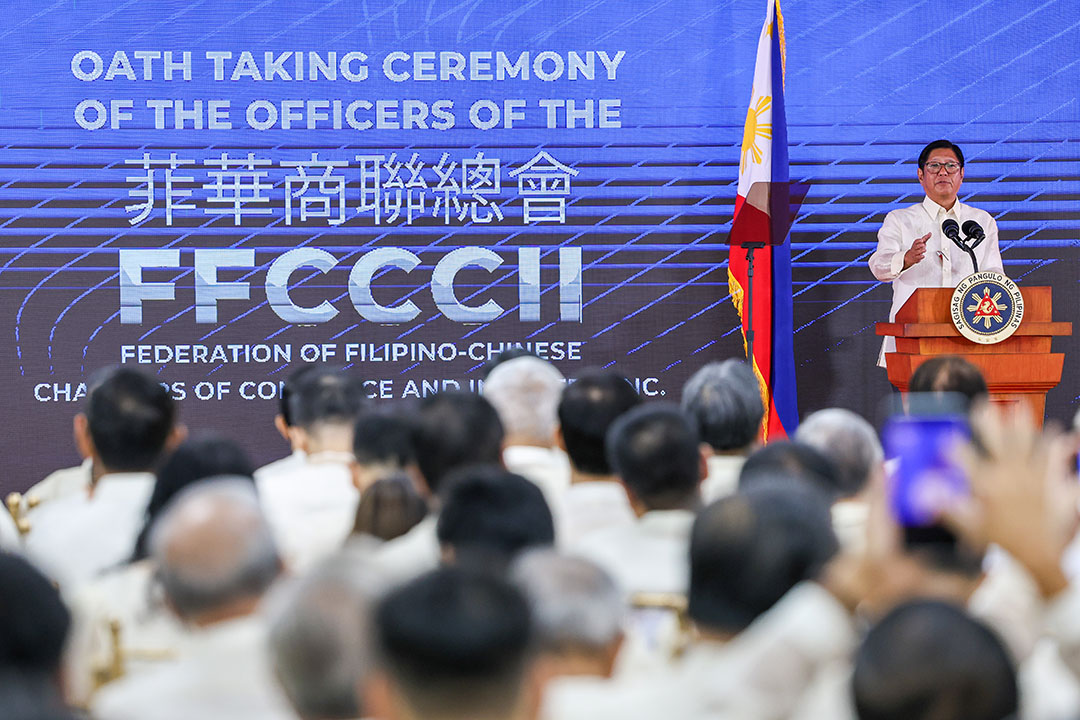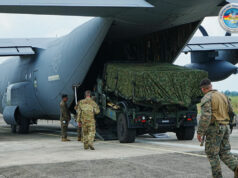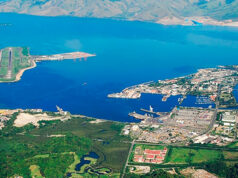Fil-Chinese firms told to support MSME

PRESIDENT Ferdinand R. Marcos, Jr. on Tuesday urged the newly elected officers of the Federation of Filipino-Chinese Chambers of Commerce and Industry, Inc. (FFCCCII), to champion micro, small and medium-sized enterprises (MSMEs), drive inclusive growth, and strengthen international trade ties.
“Your leadership should not only focus on large enterprises,” Mr. Marcos said during the oath-taking ceremony in Binondo, Manila, according to a transcript from the Presidential Palace.
“It is just as crucial that you empower small and medium-sized businesses. By uplifting them, you are also uplifting the entire economy and the entire nation,” he added.
MSMEs account for over 99% of registered businesses in the country and employ about 65% of the workforce.
The chief executive highlighted the group’s support for the Regional Comprehensive Economic Partnership (RCEP), which Manila ratified last year, calling it a “gateway to deeper regional integration and investment inflows.”
Mr. Marcos also noted that the group’s civic programs, such as building over 6,300 classrooms through its Operation Barrio Schools and conducting medical missions, demonstrate a fusion of economic influence and social commitment.
He also reiterated his administration’s push to modernize the country’s business climate, citing two initiatives: the CREATE MORE Act, which seeks to refine corporate tax incentives and promote greater transparency, and the Green Lanes for Strategic Investments, a reform aimed at fast-tracking approvals for high-impact foreign investments.
While not directly addressing rising geopolitical tensions in the region, the President underscored the value of business diplomacy and people-to-people ties, pointing to cultural exchange efforts and philanthropic initiatives, such as the recent distribution of gift bags to 2,000 families along the Pasig River, as evidence of the Federation’s grassroots reach.
The FFCCCII, established in 1954, comprises hundreds of member chambers and companies that are key drivers of Philippine trade and real estate development, especially in Metro Manila and emerging regional hubs. — Chloe Mari A. Hufana



